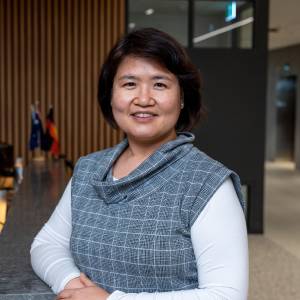Patient Email Communication Policy
At Northern Blood and Cancer Care (NBCC), we recognise the importance of effective communication with our patients and staff via electronic means. This Email Policy outlines the appropriate use of electronic communication, which includes email, facsimile and short message service (SMS). Communication with patients via electronic means is conducted with appropriate regard to privacy and data confidentiality.
Purpose of Email Communication
A patient’s personal information may be used or disclosed for the following:
- Administrative purposes in the operation of our practice.
- Billing purposes, including compliance with Medicare requirements.
- Others involved in your health care, including treating doctors and specialists outside this medical practice. This includes but is not limited to: referrals to other doctors; referrals for medical tests; and in the reports or results returned to us following the referrals.
- Accreditation and quality assurance activities to improve individual and community health care and practice management.
- For legal related disclosure as required by a Court of Law.
- To comply with any legislative or regulatory requirements, e.g. notifiable diseases.
- For use when seeking treatment by other doctors in this practice.
- Reminders and recalls
- Email correspondence when appropriate
Consent to correspond with patients and other practitioners via email is gathered using the NBCC New Patient Registration form within the practice. Our practice’s privacy policy details the use of email correspondence at NBCC. This privacy policy can be requested from reception staff.
Where required, our emails to patients with attachments will be password protected with a password generated by the practice specific to each patient.
Reception staff are to use approved identifiers to verify patient details when uploading documents to patient files or send emails to patients and external healthcare providers.
Practice staff are to confirm external healthcare provider contact emails are correct prior to sending any email correspondence. Where possible, secure messaging facilities between practices (eg Healthlink) will be used. NBCC uses Microsoft 365 for email correspondence which offers end-to-end encryption.
Our email address is admin@northernbcc.com.au You can use this email address to communicate with our practice subject to the warnings discussed below.
Risks of using email
Transmitting patient information poses several risks of which you should be aware. You should not agree to communicate via email without understanding and accepting these risks. The risks include, but are not limited to, the following:
- The privacy and security of email communication cannot be guaranteed.
- Employers and online services may have a legal right to inspect and keep emails that pass through their system.
- Email is easier to falsify than handwritten or signed hard copies. In addition, it is impossible to verify the true identity of the sender, or to ensure that only the recipient can read the email once it has been sent.
- Emails can introduce viruses into a computer system, and potentially damage or disrupt the computer.
- Email can be forwarded, intercepted, circulated, stored or even changed without the knowledge or permission of NBCC or the patient. Email senders can easily misaddress an email, resulting in it being sent to many unintended and unknown recipients.
- Email may be permanent. Even after the sender and recipient have deleted their copies of the email, back-up copies may exist on a computer or in cyberspace.
- Use of email to discuss sensitive information can increase the risk of such information being disclosed to others.
- Email can be used as evidence in court.
- Choosing not to use encryption software increases the risk of privacy violation.
Conditions of using email
NBCC will use reasonable means to protect the security and confidentiality of email information sent and received. However, because of the risks outlined above, the security and confidentiality of email communication cannot be guaranteed. As such, NBCC will not be liable for improper disclosure of confidential information that is not the direct result of intentional misconduct of NBCC staff.
The consent agreement includes the following conditions:
- Although we will endeavour to read and respond promptly to your email, we cannot guarantee that any particular email will be read and responded to within any particular period of time. Therefore, you should not use email for medical emergencies or other time-sensitive matters.
- Emails about medical issues may be made part of your medical record and may be seen by staff with authorised access.
- We may forward your emails to others involved with your medical care. We will not, however, forward our emails to anyone else without your prior written consent, except as authorised or required by law.
- Email communication is not an appropriate substitute for clinical assessments. You are responsible for following up on emails and for scheduling appointments when warranted.
- If your email requires or invites a response and you have not received a response within a reasonable time period, it is your responsibility to follow up on this.
- Email should not be used for sensitive medical information. NBCC does not communicate with patients about their medical conditions through email, unless they request us to do so.
- We are not responsible for information loss due to technical failure.
Instructions for communication by email
- Use your own personal computer/device.
- Inform NBCC of any changes in your email address.
- State your name and the reason for the email in the subject line (e.g., ‘John Smith – prescription renewal’).
- Please do NOT email medical or clinical questions to us – for all enquires, please call us on 03 8408 6000
- Respond to emails that require a response.
- Use passwords to secure access to your computer/device.
- Withdraw consent only by email or written communication to NBCC .
- Should you require immediate assistance, or if your condition appears serious or rapidly worsens, you should not rely on email. Rather you should call the NBCC office for a consultation, or take other measures as appropriate.


